Custom vs. Costume
What is the difference?
Custom and costume are two commonly confused words, particularly for people studying English as a foreign language. How do you know when to use each one?
The two words sound very similar, and there is only a small difference in their spellings. Despite this, their meanings are very different. It's important to learn the difference between custom and costume, because one word refers to a tradition and the other refers to a type of clothing.
Let's look at some examples to help you understand the difference.
Click Here for Step-by-Step Rules, Stories and Exercises to Practice All English Tenses
Custom
The word custom is a noun that means tradition. Other synonyms are ritual and convention. Custom can refer to a tradition that is observed by a society as a whole...
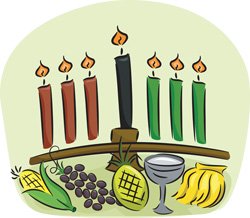
Or something that is done year after year by a family or group of friends.
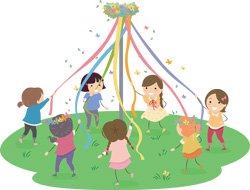
A few examples of customs:
The American tradition of eating Turkey on Thanksgiving.
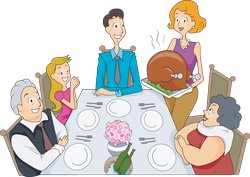
The Japanese practice of taking off shoes before entering the house.

The Jewish ritual of lighting candles on Hanukkah.
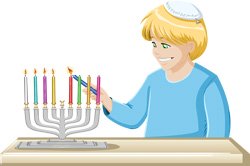
Some families go on vacation to the same place every year.
When they do so, they are also observing a custom.

The adjective form of custom is customary. Something that is not a custom is not customary. Customary means that something is usually done, and not customary means that something is not usually done.
The word custom appears in several other contexts where the word has a different definition. These meanings are not related to the definition above, but they are very useful to know.
First of all, there is the noun customer, which refers to a person who is buying something. (This word comes from an older definition of custom, where the word meant business. This use of custom is not very common today, but the word customer is used all the time.)

Second, the adjective custom-made means that something has been made for a specific person. A custom-made wedding dress is one that was designed exclusively for one bride, and custom-made shoes are ones that were made with a particular person in mind.
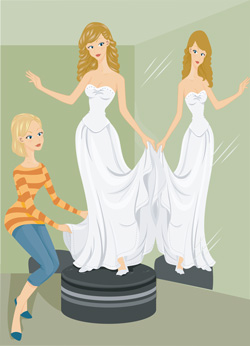
Finally, at the airport you often have to pass through customs. Customs is a place where airport officials make sure that the things you are traveling with are safe and legal, and collects taxes on them.
Collocations
When speaking about traditions, common collocations of custom are to observe a custom, to follow a custom, to respect a custom and to maintain a custom. These expressions mean to follow a tradition.
Other common collocations are according to custom and as is the custom. These expressions mean to do something because it is a tradition.
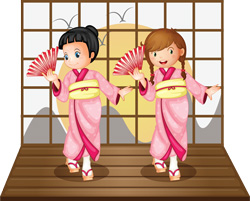
Examples:
- Traveling is a great way to learn about customs in different parts of the world. (When you travel, you can learn about traditions in different parts of the world.)
- In my family, it is a custom to spend the summer at my grandmother's house in upstate New York. (In my family, it is a tradition to spend the summer together at my grandmother's house.)
- According to custom, the bride and groom should not see each other on the morning of their wedding day. (On the morning of their wedding day, the bride and groom often don't see each other, because it is considered bad luck.)
- In England, it is customary to have a roast dinner on Sunday afternoons. (In England, it is traditional to eat a special lunch together on Sunday afternoons.)
- In Spain, it is customary for students to call their teachers by their first names. This is not customary in many other countries. (In Spain, many students call their teachers by their first names. This practice is not common in other countries.)
Costume
The word costume is also a noun. It has two definitions, both related to clothing.
On the one hand, a costume is a set of clothes that is typical from a particular place or time period. Other synonyms for costume are traditional dress and outfit.
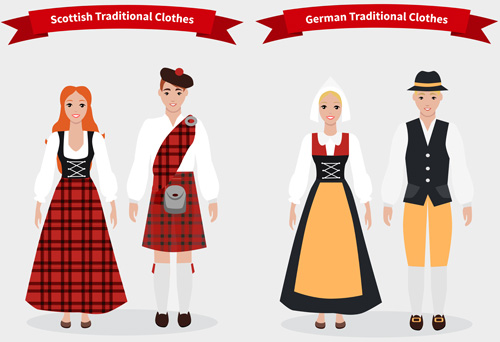
In the Venice carnival, it is traditional for people to wear elaborate costumes made of fine cloth, accompanied by masks and matching accessories.
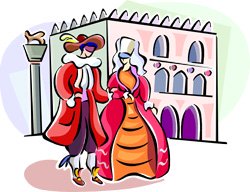
In the festival of Seville, Spain, women wear long Flamenco dresses and special shoes. The costume is complemented by flowers in the hair, and a fan that women carry in their hands.
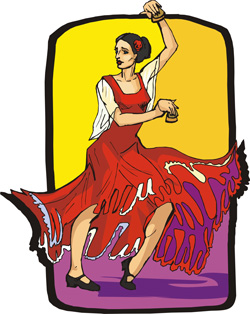
A costume can also be a set of clothes that people wear when they dress up for a special event. Bear in mind that costume does not mean fancy or elegant clothes – it means clothes that are different or unusual and that you would not wear on a normal day. It is typical to wear costumes at Halloween or when attending a costume party.
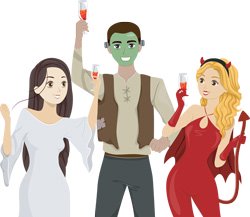
Common costumes are pirate costumes, ninja costumes, princess costumes and vampire costumes. These types of costumes are usually very creative. Often, they are also scary. Some people love to wear costumes, and other people really dislike them!

Collocations
The most common collocation with costume is to wear a costume. It is also possible to say that you dress up in a costume. A party where you are expected to wear a costume is called a costume party.
Examples:
- At Oktoberfest, German women wear a costume called Lederhosen. (At Oktoberfest, a festival in Germany, the traditional dress worn by women is called Lederhosen.)

- In Scotland, it is traditional for men to wear a costume called a kilt. (The name of the traditional dress worn by men in Scotland is the kilt.)

- Rather than buy a costume in a shop, I prefer to make my costumes myself. (When I need to dress up for a special event like Halloween, I like to make my outfits myself.)
- I love your costume! Where did you get it? (The set of clothes you are wearing is amazing! Where did you buy it?)
- My sister is going to a costume party tomorrow. She is going to dress up as a pirate. (Tomorrow, my sister is going to a party where everyone needs to dress up in special clothes. She is going to wear a pirate outfit.)
Tips
The pronunciation of custom and costume is similar, but it is not the same. The 'u' in custom is similar to the vowel sound in the words lunch, bus and fun. The 'o' in costume is like the vowel sound in the words hot, body and job.
A Story to Practice Custom vs. Costume
Dora loves dressing up in costumes, even though doing so is not customary in her culture. Dora has many different types of costumes, including a superhero costume, a warrior costume and a dinosaur costume.
When her family went to Europe, her parents bought her a traditional costume from every country they visited. The family had trouble getting all of the costumes through customs! Now Dora has quite the costume collection.
Dora has adopted the custom of wearing a different costume to school every Friday. At first her classmates thought it was strange, but now they also like to wear costumes. Everyone agrees that the best costumes are the ones that are custom-made.
Thanks to Dora, the school is considering making the event an official custom. What started out as unusual is now very customary!

Quiz
Answer the following 10 questions and then check your answers. Each question is worth 10 points.
Part 1:
- Which of the following is a correct definition of custom?
- traditional dress
- outfit
- special clothes
- ritual
- Which of the following is a correct definition of costume?
- traditional dress
- convention
- habit
- something usually done
- Which sentence is written correctly?
- What a beautiful costume! Did you make it yourself?
- It is a costume in my family to eat paella on Sundays.
- For Japanese women, the traditional custom is the kimono.
- At tonight's party, everyone will be wearing a custom.
- Which of the following is written incorrectly?
- In France, it is customary to eat baguettes for breakfast.
- Does your family observe any special costumes?
- India is a country with many fascinating customs.
- I only wear a costume once or twice a year.
Part 2:
- Does your family observe any special ___________?
- costumes
- customary
- customs
- custom-made
- In my opinion, the traditional ___________ they wear in China are very beautiful.
- costumes
- customary
- customs
- custom-made
- It is ___________ to give gifts on people's birthdays.
- customary
- a costume
- customs
- custom-made
- Is your dress ___________, or did you buy it in a store?
- customary
- a costume
- customs
- custom-made
- At many festivals, it is ___________ to wear traditional ___________.
- customary; customs
- customary; costumes
- a costume; customs
- a costume; costumes
- Janine's favorite ___________ is dressing up in a ___________.
- custom; custom
- costume; costume
- costume; custom
- custom; costume
Answer Key
Part 1: D | 2. A | 3. A | 4. B
Part 2: C | 2. A | 3. A | 4. D | 5. B | 6. DGet Updates, Special Offers, and English Resources
Download your FREE GIFT (the first two chapters of
English Short Stories Book and Workbook)
as soon as you join!

By submitting your email, you consent to receiving updates and newsletters from us and to the sharing of your personal data with third parties for the purposes of sending you communications. We will not spam you. You can unsubscribe at any time. For more information, please see our privacy policy.





